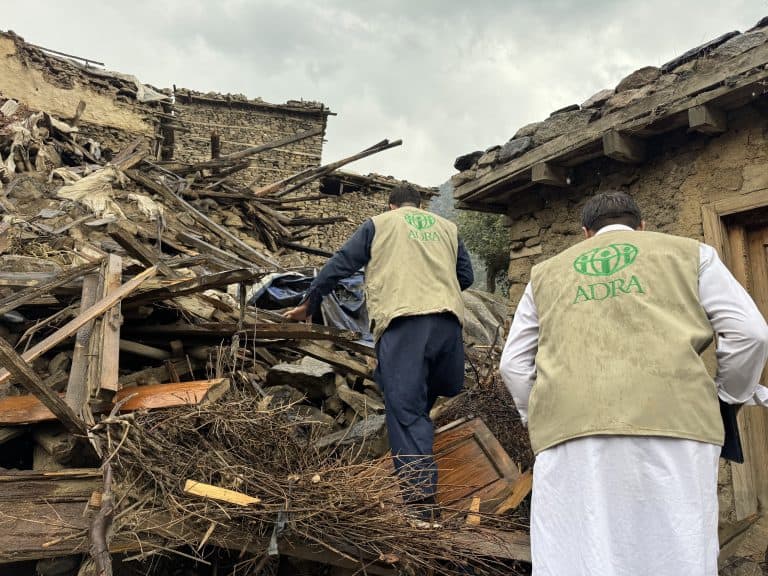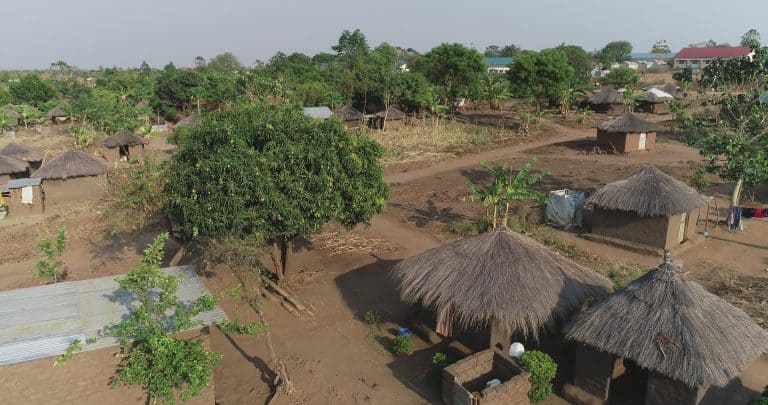
ADRA has established itself as a leader in the education sector, emphasizing both formal and non-formal education, as well as technical and vocational training and advocacy efforts. Since 2018, ADRA’s education initiatives have reached 2,096,248 learners across the globe.
In 2023, ADRA served more than 1,057,499 children worldwide with over $47 million spent on 149 educational projects.
Advocacy is a core component of ADRA’s education programs. From Education for All campaigns, policy development and revisions to implementation of accelerated learning programs that support reintegration of children to school and increase investments, ADRA has been able to support education for more than 817,758 women and girls. In the last 2 years more than at least 3,000 children, youth and adults with disabilities have benefitted from ADRA’s education program and advocacy efforts.
The Adventist Development and Relief Agency (ADRA) is committed to empowering individuals in poverty through transformative education. With a presence in over 120 countries, ADRA provides both formal and non-formal education, technical training, and advocacy, impacting over two million learners since 2018. ADRA’s learner-centered approach prioritizes sustainable change, innovative and adaptive programming, and accountability, with a focus on equitable and inclusive education. In key programs across Niger, Mali, Ethiopia, Somalia, and South Sudan, ADRA delivers a comprehensive package to improve access to quality education, particularly for girls, ethnic minorities, and children with disabilities, creating safe and supportive learning environments for all.
ADRA’s literacy and numeracy programs equip individuals with essential skills, creating opportunities for growth and self-reliance. Whether focusing on adults, youth, or children, our approach ensures that classrooms are well-equipped with reading materials for both students and teachers, along with necessary furniture and technology. Teachers receive professional development to enhance their skills in teaching literacy and numeracy. Learners benefit from high-quality materials, books, and curriculum, as well as assessments that effectively identify their strengths and areas for improvement in literacy and numeracy skills.
Advocacy is integral to all of ADRA’s education programs, ensuring that governments are held accountable and that community leaders and learners understand their right to quality, equitable, and accessible education. As a global organization with deep local connections, we focus our advocacy efforts on policy change, empowering community leaders to champion education, and forming partnerships with international organizations, foundations, and the private sector to promote accessible, quality education for all.
In collaboration with the Seventh-day Adventist Church, ADRA launched its first global advocacy campaign, Every Child. Everywhere. In School., aimed at ensuring that children worldwide have equitable access to quality education. This campaign, supported by the Global Education Report, identified barriers such as financial constraints, inclusion, education quality, retention, and crisis management. The report offered practical solutions for leaders to implement, improving education access for children globally.
“Education is a powerful driver that allows people to move closer to the fullness of life that God intends for them. Education fights poverty and alleviates injustice. Education keeps children safe and opens a whole new world of opportunity for them”.
– Michael Kruger, ADRA president.
ADRA is committed to supporting out-of-school children. Through non-formal education (NFE) and remedial programs, ADRA helps children who have dropped out or never had the chance to attend school overcome barriers to education. Our NFE approach has enabled learners to re-enter education through accelerated learning programs focused on curriculum adaptation, technology integration, teacher training, life skills, advocacy, child protection, and infrastructure support. By partnering with governments and communities in countries like Niger, South Sudan, Somalia, Syria, Peru, Sudan, Mali, and Madagascar, ADRA ensures that every child has the opportunity to return to school or pursue vocational pathways.
Child protection is central to ADRA’s educational interventions, especially in emergencies. Our Education in Emergencies (EiE) programs prioritize creating safe, inclusive, and protective learning environments for vulnerable children. Key initiatives include establishing protection centers, providing positive parenting mentorship, offering psychosocial support for students, parents, and teachers, and using music therapy to help learners with behavioral challenges. ADRA also provides technical support to community leaders to establish child protection mechanisms. In countries like South Sudan and Thailand, refugee and internally displaced children benefit from psychosocial support, safe infrastructure, and secure learning spaces. ADRA also integrates disaster risk reduction (DRR) strategies to build resilience and protect children from harm. Our advocacy efforts, such as the “Every Child. Everywhere. In School.” campaign, reinforce our commitment to safeguarding children’s rights, particularly those at risk of early marriage or exclusion due to disability.
ADRA is transforming youth development by empowering the next generation of leaders. Our Youth Empowerment Program (YEP) partners with governments and faith-based organizations to provide mentoring, skills training, and life skills. Youth engage in community service and are encouraged to become advocates for change. YEP operates in Eswatini, Zambia, Mozambique, Namibia, and Lesotho.
Through our Technical Vocational Education and Training (TVET) programs, youth and adults have gained market-relevant skills, boosting employment and personal empowerment. In Somalia, ADRA helped establish the TVET department in Jubaland and supports the Kismayo Technical Institute. Our partnerships with national and international organizations ensure lasting, impactful change for young people.
Inclusion is central to ADRA’s education programs. We have increased enrollment for children with disabilities by 552% across five countries in five years. ADRA achieves this by improving school infrastructure, training educators in disability awareness and socio-emotional learning, and providing specialized materials. Our efforts ensure that every child, regardless of ability, can access quality education and thrive. Through these initiatives, ADRA is breaking barriers and expanding opportunities for children with disabilities.
ADRA’s Education in Emergencies (EiE) approach ensures vulnerable children and communities have access to protection, recovery, and development opportunities. Our strategy focuses on five key areas: safe learning environments, inclusion, education pathways, disaster risk reduction (DRR), and learning assessment. By prioritizing protection and safeguarding, ADRA’s programs adapt to local needs and align with national strategies. For example, in South Sudan, ADRA provides safe infrastructure, learning materials, trained staff, and psychosocial support for refugees and displaced children. In Thailand, refugees receive skills training in agriculture, sewing, wiring, and cooking, fostering resilience and self-reliance.


Discover the incredible impact ADRA has across the world! With a presence in over 120 countries, ADRA brings new hope and positive change to countless communities in need. From disaster relief to long-term sustainable development projects, ADRA’s commitment to making a difference has inspired many to join in their efforts to create a better world. Through perseverance and compassion, ADRA has touched the lives of so many and continues to inspire us all to work towards a brighter future. Together we can make a difference.